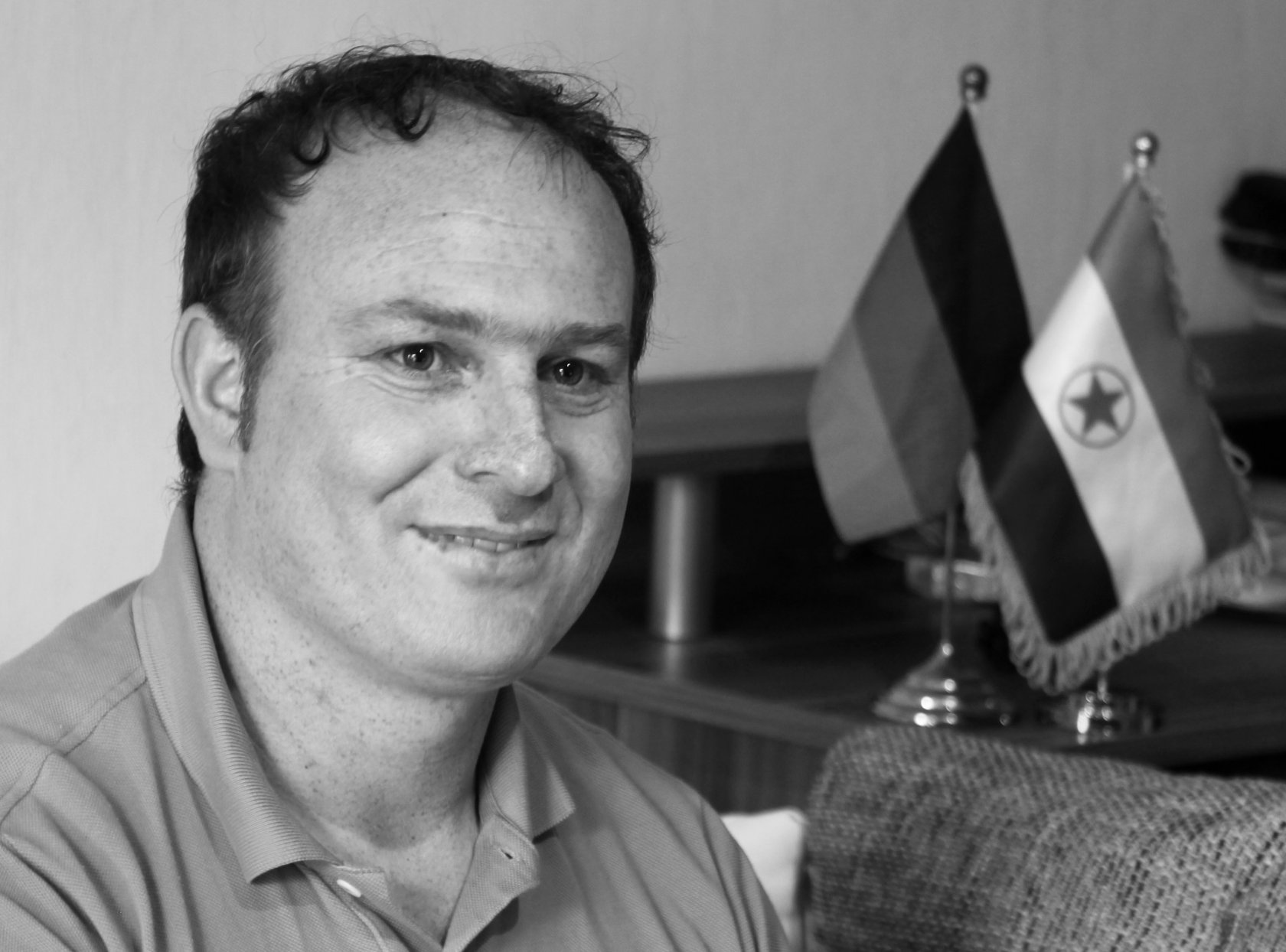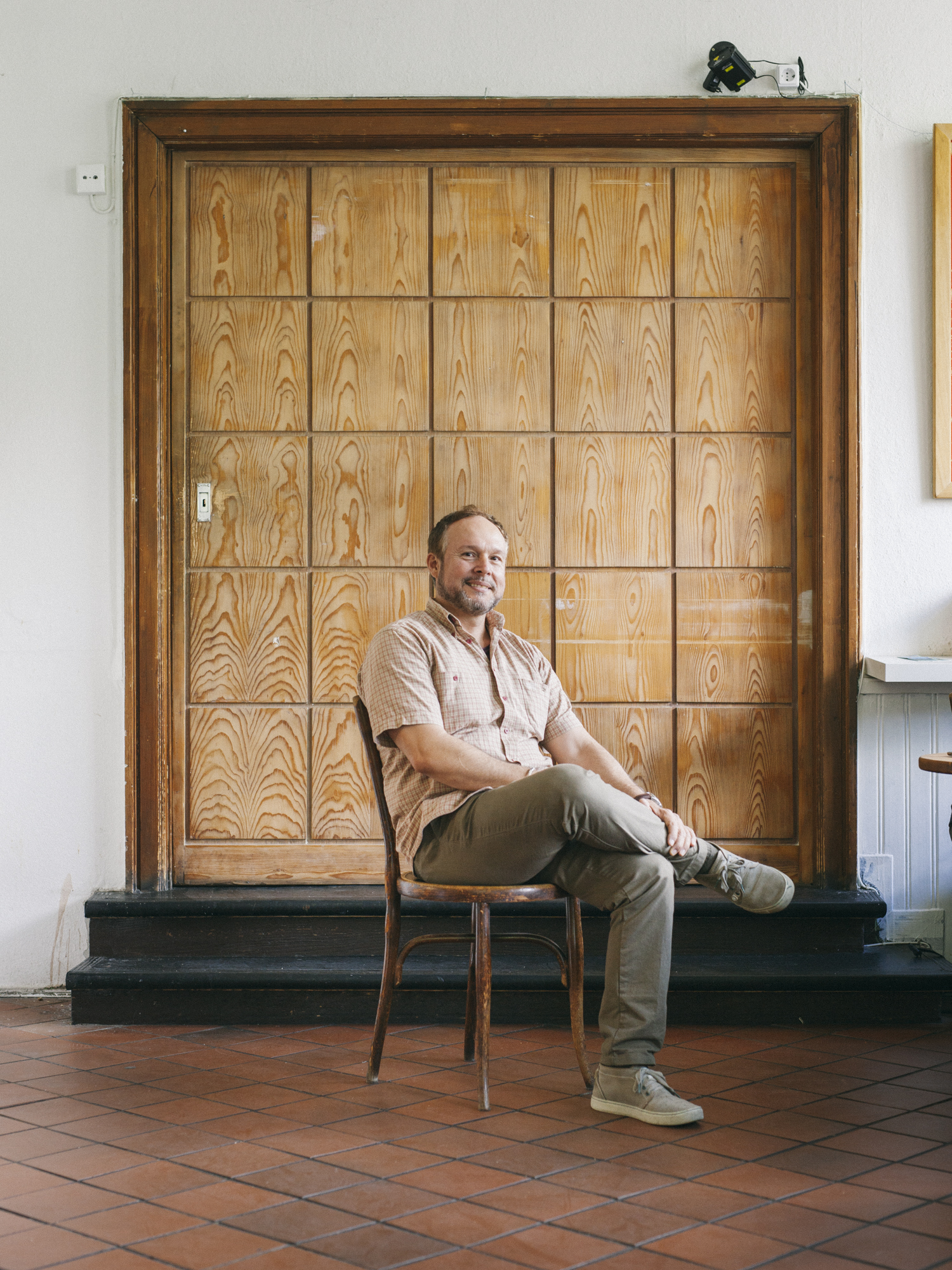Daria Malitskaya, Stephanie Golden & Roman Azadzoy
Bridging the Cultural Divide
Tales of Cultural Identity
1
Misunderstood: The Identity Crisis
"We should not judge people from the outside," - Kenan (Syrian refugee)
2
Al-Ahwaz: A Forgotten Land
Hakim Chohbishat, living in Germany for the past four years, said the oppression his people face has been forgotten. However, this migrant did not flee from Syria, Afghanistan, or Iraq, he left a country once known as Al-Ahwaz.
"I had to leave the country because I feared for my life," said Chohbishat, 32. "They killed my uncle because he wrote a poem against the regime."
Proudly holding a bag of earth from his native homeland, the visibly emotional Chohbishat talked about the once free region of Al-Ahwaz, annexed by Tehran in 1925 and renamed Khuzestan. The oil-rich country, now part of Iran, is located in the southwest part of the region.
Under Iranian government rule Ahwazi Arabs face continuous violence and repression. According to the Ahwazi Human Rights Organization, Arabs living in the region are among the most brutally oppressed people in the Middle East.
Under Iranian government rule Ahwazi Arabs face continuous violence and repression. According to the Ahwazi Human Rights Organization, Arabs living in the region are among the most brutally oppressed people in the Middle East.
Since 1980, the Iranian government has passed discriminatory ethnic and religious polices against Ahwazi Arabs. The policies ban them from participating in government-based activities and limits their access to education and resources. The Iranian authorities persecute Ahwazi Arabs through arbitrary arrests, torture and rape.
"My uncle was arrested and thrown in prison for 'not being loyal to the Iranian government," Chohbishat said, "He was then hung."
"My uncle was arrested and thrown in prison for 'not being loyal to the Iranian government," Chohbishat said, "He was then hung."

Hakim Chohbishat at his Wandsbek home remembering his forgotten country of Al-Ahwaz
The United Nations Human Rights Commission and European Union condemns the violent and discriminatory actions the Iranian government has taken against the Ahwazi Arabs. However, the violent suppression of the ethnic group continues.
The lack of public awareness may be due to the absence of identity recognition. The United Nations High Commissioners for Refugees classifies the group as Iranians. Thus, there is no data on how many Ahwazi Arabs are seeking asylum in other countries.
The lack of public awareness may be due to the absence of identity recognition. The United Nations High Commissioners for Refugees classifies the group as Iranians. Thus, there is no data on how many Ahwazi Arabs are seeking asylum in other countries.
"I do not think people know what my people are going through," - Hakim Chohbishat
Chohbishat left his mother, father and siblings behind to seek a better life in Germany. Armed with a fake passport, he left the Al-Ahwaz region in 2012, a few months before his uncle was executed. Although he has been living in Wandsbek for some time and speaks fluent German, he has not forgotten the people he has left behind.
"If I could do one thing for my country," Chohbishat said, "I would help then get their freedom back."
"If I could do one thing for my country," Chohbishat said, "I would help then get their freedom back."
3
Opening the Door to Multiculturalism
Glen Ganz, the son of a German immigrants from South America, is helping refugees learn the German culture without losing their own cultural identities through the cafe "Why Not?"

"The cafe bridges the cultures and aims to enable all folks to be themselves, and in the same time, learn about Europe, about Germany, about us," said Ganz, the director of the place.
Ganz has managed the cafe for the last nine years. Opened 25 years ago, the cafe helps newcomers to integrate into the German culture and learn the language. At that time, most of the immigrants to Germany were Latin-Americans, which accounts for the name. The cafe-founders realized that there were few ways for these newcomers to learn German and meet new people. There were no integration classes, so volunteers at the cafe used the location for teaching these immigrants the basics of a new language.
Today, a quarter of a century later, an entirely new group of immigrants has come to Germany and has found themselves in a difficult situation. Ganz said that even if the immigrants can't pay for the language lessons, they can still count on help from the cafe. There are 70 volunteers there, who speak numerous languages, and many of them were themselves once immigrants.
Ganz has managed the cafe for the last nine years. Opened 25 years ago, the cafe helps newcomers to integrate into the German culture and learn the language. At that time, most of the immigrants to Germany were Latin-Americans, which accounts for the name. The cafe-founders realized that there were few ways for these newcomers to learn German and meet new people. There were no integration classes, so volunteers at the cafe used the location for teaching these immigrants the basics of a new language.
Today, a quarter of a century later, an entirely new group of immigrants has come to Germany and has found themselves in a difficult situation. Ganz said that even if the immigrants can't pay for the language lessons, they can still count on help from the cafe. There are 70 volunteers there, who speak numerous languages, and many of them were themselves once immigrants.
"Immigration is a normal part of people's life," Ganz said. "Also, immigration is the history of my family." Ganz' family lineage spans the globe. His father is German but grew up in the Ukraine, where his family moved when he was a child. His mother is from Latin America, where Ganz went to school. Additionally, he has relatives from Africa and Afghanistan.
"In my family immigration is always proceeding," Ganz said. "Moreover, most of us, almost everybody, has some kind of the immigration history. For me [maintaining ethnic culture] is the concept. There is no conflict to hold on to my cultural identity, and in the same time, help other people to integrate. That's why in our cafe we are doing more than just language courses. We are learning how to live together. We eat, cook and spend time together."
"In my family immigration is always proceeding," Ganz said. "Moreover, most of us, almost everybody, has some kind of the immigration history. For me [maintaining ethnic culture] is the concept. There is no conflict to hold on to my cultural identity, and in the same time, help other people to integrate. That's why in our cafe we are doing more than just language courses. We are learning how to live together. We eat, cook and spend time together."
"God has given each culture its own strength," - Glen Ganz
The basic principle of the cafe "Why Not?" is not to start an educational program but to allow people to be comfortable with themselves and their cultural identity. For example, cooking is an excellent opportunity for representatives of various nationalities to become acquainted with each other's traditions and to become familiar with the culture of a particular country, including a country that has become their new home.
Almost everybody in the cafe is an immigrant or has been an immigrant. Ganz said that most of the immigrants who come to the cafe are men because it is more difficult for women to cross borders. In addition, there are a lot of old people who patronize the cafe. Ganz explained that younger people learn new languages and culture more easily than older people and have less need to frequent the cafe.
"You have to create a new family identity," Ganz said. "You will always think about your parents, but your children will know this new identity, and they also will know their grandparents' customs. This is what cultural identity is. It's not fixed. It develops with generations."
Almost everybody in the cafe is an immigrant or has been an immigrant. Ganz said that most of the immigrants who come to the cafe are men because it is more difficult for women to cross borders. In addition, there are a lot of old people who patronize the cafe. Ganz explained that younger people learn new languages and culture more easily than older people and have less need to frequent the cafe.
"You have to create a new family identity," Ganz said. "You will always think about your parents, but your children will know this new identity, and they also will know their grandparents' customs. This is what cultural identity is. It's not fixed. It develops with generations."
4
Refugee Camp: A Look Inside
Living conditions in one of the refugee camps in Hamburg
(Photos by a Syrian refugee, who wishes to remain anonymous)
(Photos by a Syrian refugee, who wishes to remain anonymous)
Refugees are faced with a lot of difficulties when they start a new life in a new country with a completely different culture. It starts when they enter the refugee camps that are overcrowded. They live in extremely small spaces, since each tent has six beds in only twelve square meters. The roommates usually have different nationalities. The major challenge refugees have to face is a new language and culture they are not familiar with.
A project of the International Media Center at Hamburg University of Applied Sciences in cooperation with Saint Petersburg State University and the Northwestern University in Chicago (IL).
Photos by Daria Malitskaya and Philipp Meuser
Photos by Daria Malitskaya and Philipp Meuser
